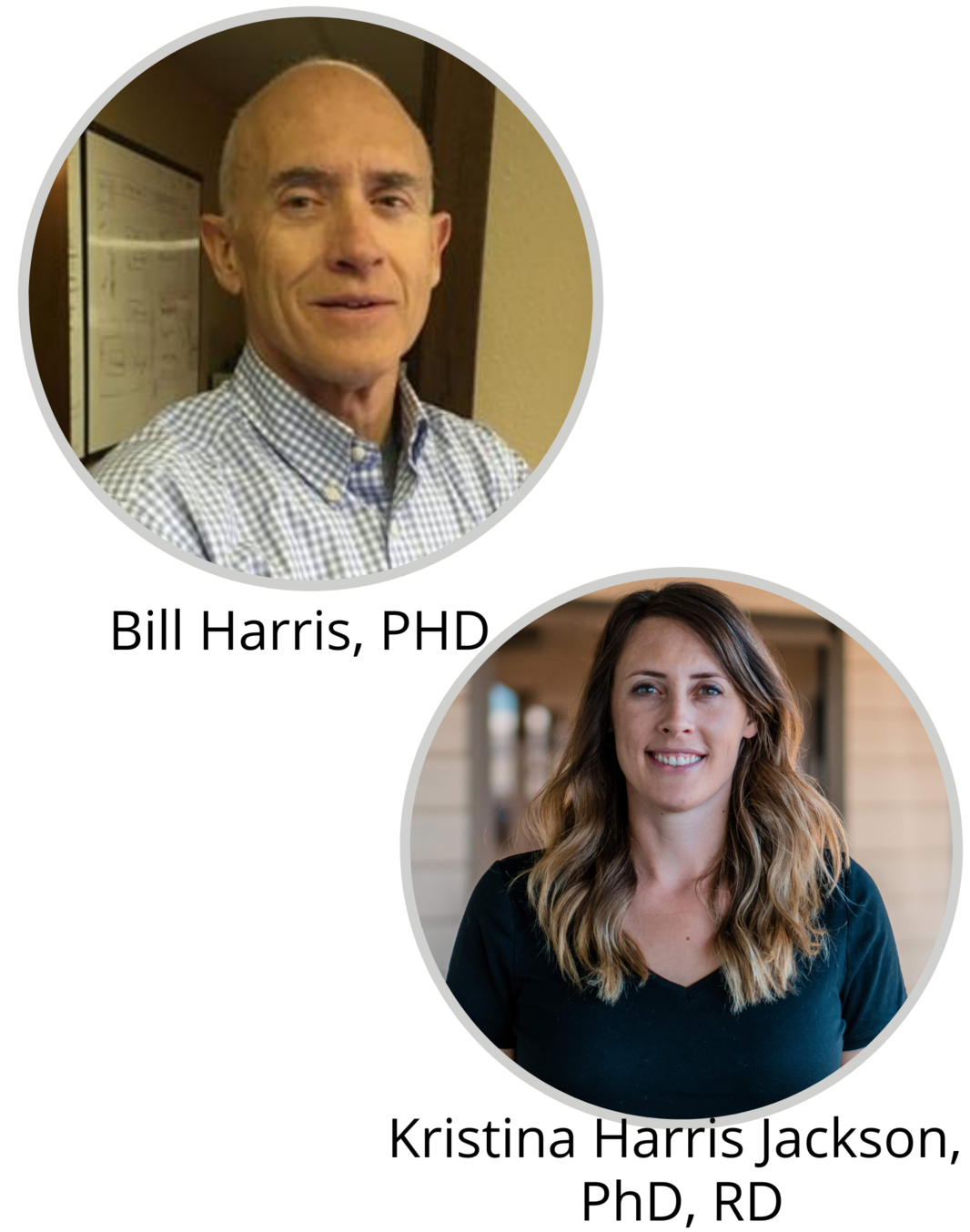Omega-3 Fatty Acids
Q&A for Session #1
Omega-3 Fatty Acids Overview
Sports Nutrition Symposium 5.0
Monday June 20th, 2022 @ 12 pm CST
This talk will give a wide view of current omega-3 fatty acid effects on diseases and health outcomes. It will also introduce the Omega-3 Index, a blood test the tells you your systemic levels of these important fatty acids.
All live sessions are free to attend. If you want lifetime access to the sessions from Sports Nutrition Symposium 1.0, 2.0, 3.0 and 4.0 then check out the VIP Pass!
- Any recommendations on how vegans can obtain adequate amounts?
- Recommend Algal DHA that are fully vegan products. Algae that the fish eat through food chain make the Omega 3
- What are some recommendations for Omega 3 supplementation? Dosage? Time of day?
- Different opinions coming out. Take 1) When you remember; consistency is the most important. 2) Eat with a meal that is higher in fat. Some people think taking it at night will help more with brain health; not sure about the hard data on that. Can do larger doses every other day
- Wild versus farm raised?
- Outside of scope because goes into issues of access and cost. There is a lot to consider to get people to eat fish. They have similar Omega 3 levels; farmed salmon used to have higher EPA and DHA per serving, now more closer to what wild is but farmed salmon has more fat overall. A little better fat profile in wild overall, but as they're using less wild-caught fish to feed wild salmon, the Omega 3 levels have gone down and are using algal oils to try to keep those levels up
- Is there any truth to the idea that fish oil supplements should be packaged in an opaque/dark container vs clear container to reduce the risk of the oil being oxidated?
- A lot are in a dark container. It is best practice to be in a dark container.
- Are chia seeds and flax seeds a good replacement for fish in terms of DHA/EPA for vegans?
- Low conversion rate, don't depend on these. ALA in 10 g doses may increase EPA, doesn't increase DHA. Evidence is for EPA and DHA. Continue to have ALA but take DHA as well.
- In terms of cell membrane function/health- is it possible to have too many omega-3's in the phospholipid bilayer? Or is it always "the more the merrier?"
- No risk that we know of. Have seen people in their low 20s. There is going to be a natural limit in the body. Bone marrow makes red cells and you have to have certain membrane characteristics to carry oxygen properly so there will be a limit with how high levels can get. There is not a lot of extra benefit to be above 12, most benefit comes from being low such as 4% to 8%. We target at 8; getting higher and higher just doesn't have increasing benefit and there can be diminishing returns
- According to what I have read and studied over the years, I always recommend products high EPA and rather low in DHA...(high EPA to DHA ratio) yet a lot of people believe in exactly the opposite..what is your scientific input on this?
- Evidence for both sides, supplement with both is best. The overall dose of EPA and DHA is more powerful whether or not there's more EPA or DHA but they are together in nature so that's what is recommended right now.
- What is the specific blood test should we ask the GP for to measure omega-3 levels? Is it omega-3 index?
- Plasma phospholipid using LCMS that is related to RBC levels but can't use same scale; it's typically lower. Numbers should increase with increased Omega intake. Red cells are slower response because it is more tissue level. Anything is plasma can be affected by absorption and it is a different metric; more variable
- How does omega 3 intake influence soft tissue repair after injury or surgery?
- Haven't seen that, unsure
- Can you comment on omega 3 recommendations for those who tend toward high cholesterol, particularly LDL?
- Omega 3's will lower triglycerdies, not cholesterol. Don't expect cholesterol to go down when taking supplements. It's not a treatment for cholesterol.
- Does inclusion of ghee and coconut oil help in increasing the omega 3 index?
- Haven't seen specific studies on that; a different type of fat absorption
- There was a question of whether high omega 3 supplementation could increase risk of high grade prostate cancer in some men, in a study done some years ago. Any thoughts/follow up on that?
- That has been debunked. The study has been contradicted by other studies; a misinterpretation/overinterpretation of its own results. The high risk, low risk range was statistically significant, not clinically relevant
- Comments on omega-3 dosing around surgeries (as far as surgeons/docs recommending stopping due to bleed risk)?
- Omega 3's do not cause or increase risk for bleeding.
- I've thought that high polyunsatured fats can cause inflammation, such as the case with seed oils. Does omega 3s go against this rule? as in you want high levels of omega 3s (polyunsatured fats), but not others?
- It's shown in clinical data that Omega 3 has anti inflammatory effects functionally. They are oxidized in the body but that is to create the bioactive oxylipids. Not all oxidation is bad. Omega 3's have just shown to have that role. Omega 6's also create different oxylipids; they're also on the inflammatory side but it is essential for that part to happen for the resolving to happen. It's more complicated than Omega 3 is good and Omega 6 is bad. They're both necessary. If the balance is off, most of the balance is on the Omega 3 side and most of the evidence shows that raising Omega 3's is beneficial and not as much evidence for lowering Omega 6, partly because it is very hard to do that in the body.
- What about Krill, is a better option?
- Krill is phospholipid form so there are issues getting a high enough dosage. Otherwise it is a fine supplement but if only taking 30 mg EPA/DHA you will still not get huge Omega 3 response.
- Is there a preferred ration of EPA:DHA? OR Is there a situation where you may want higher DHA:EPA? (Concussion, etc).
- I don't think there is. Nobody has tried to dice out what the ratio should be for healing after concussions. They are both important and should both be there
- I have heard that an Algae based Omega 3 is more absorbable. Is that true?
- It is the same in absorption. It is a triglyceride based oil



Facebook comments